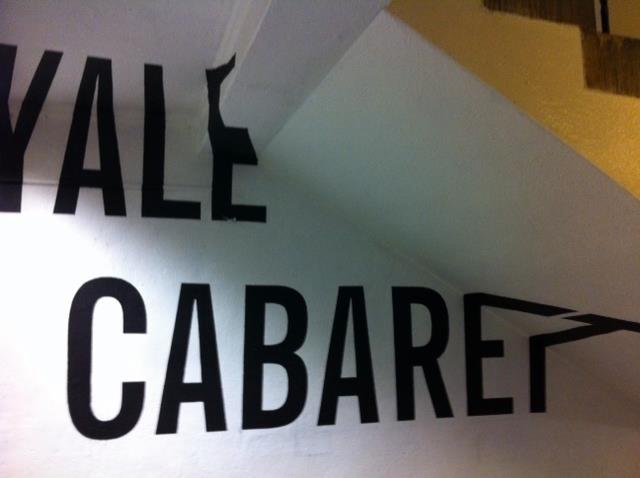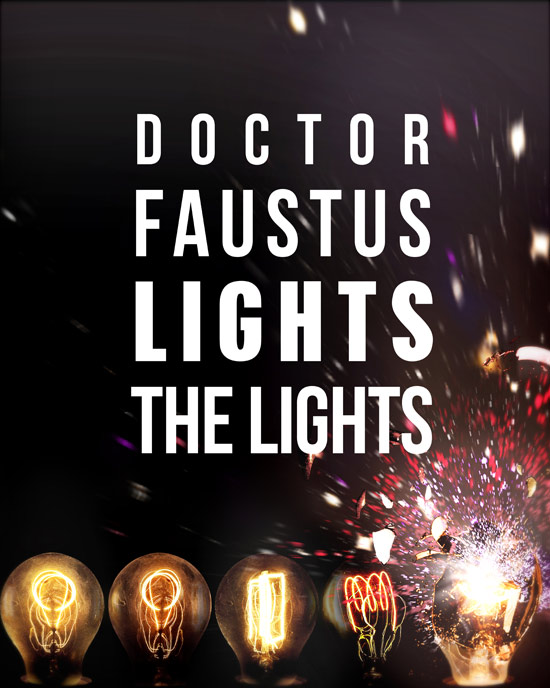New Haven is a great town for theater. If you have any doubts on that score, check out the following:

Thursday, 10/20 till Saturday, 10/22, The Yale Cabaret offers a student-generated theater piece, Creation 2011, that asks its performers to revisit and re-enact events or experiences that inspired their desire to work in theater. Co-Artistic Director Michael Place assures us the show will be "sweet and engaging on a personal level," but will also entertainingly visit some tropes of academia--certainly we can all recognize the inherent comedy of a powerpoint presentation. Yale Cabaret, 217 Park Street, New Haven.
Arts Council Award-Winning local theater group Broken Umbrella debuts its first play of the season this weekend, Friday, 10/21 through Sunday, 10/23, with Play with Matches, developed by the company with playwright Jason Patrick Wells and director Ian Alderman, the play "tells the story of quirky New Haven inventor Ebenezer Beecher" (euphonious name!), who developed matches at a factory that once stood where Westville's Mitchell Library now stands. The show continues for the next two weekends: 10/28-10/30 and 11/4-11/6. Tickets on sale now for all shows. Broken Umbrella. The Smokestack, 446A Blake Street, New Haven.
New Haven Theater Company, another local conclave of thespians, is now selling tickets to its second show of the season, Conor McPherson's The Seafarer, set in Dublin and featuring a card game that may cost someone his soul. NHTC’s Talk Radio was a strong showing this fall, and this show, directed by Hilary Brown, like the latter will feature the group's trademark ensemble acting. 11/10-12 and 11/17-19, 8 p.m., The New Haven Theater Company, 118 Court Street, New Haven.
At the Long Wharf, the Tony-Award-Winning musical Ain’t Misbehavin’ is getting up and running and purports to be a lively show,  tickets on sale now for shows running from 10/26 to 11/20. And, also at the Long Wharf, tickets have gone on sale this week for what should be a hot show: respected actor of stage and screen Brian Dennehy delivers the memory-ridden monologue of Samuel Beckett’s caustically funny and generally existential play Krapp’s Last Tape, which will run on Long Wharf's Stage II, 11/29 to 12/18. Long Wharf Theatre, 222 Sargeant Drive, New Haven.
tickets on sale now for shows running from 10/26 to 11/20. And, also at the Long Wharf, tickets have gone on sale this week for what should be a hot show: respected actor of stage and screen Brian Dennehy delivers the memory-ridden monologue of Samuel Beckett’s caustically funny and generally existential play Krapp’s Last Tape, which will run on Long Wharf's Stage II, 11/29 to 12/18. Long Wharf Theatre, 222 Sargeant Drive, New Haven.
And, at The Yale Repertory, the world premiere of new playwright Amy Herzog’s Belleville,  about a contemporary Parisian couple newly immersed in 21st century malaise, begins previews on 10/21, with its official opening on the 27th. The Yale Repertory Theatre, 1120 Chapel Street, New Haven. And coming up shortly, 10/25-10/29, provocative YSD director Lileana Blain-Cruz’s thesis show: a rendering of Gertrude Stein’s Dr. Faustus Lights the Lights, which should give us a memorable sense of how modernism plays a hundred years on. Yale School of Drama, Iseman Theater, 1156 Chapel Street, New Haven.
about a contemporary Parisian couple newly immersed in 21st century malaise, begins previews on 10/21, with its official opening on the 27th. The Yale Repertory Theatre, 1120 Chapel Street, New Haven. And coming up shortly, 10/25-10/29, provocative YSD director Lileana Blain-Cruz’s thesis show: a rendering of Gertrude Stein’s Dr. Faustus Lights the Lights, which should give us a memorable sense of how modernism plays a hundred years on. Yale School of Drama, Iseman Theater, 1156 Chapel Street, New Haven. 
A great season is shaping up! Check back for reviews of these shows as they open. And for more theater news and reviews, check out Chris Arnott's site.


